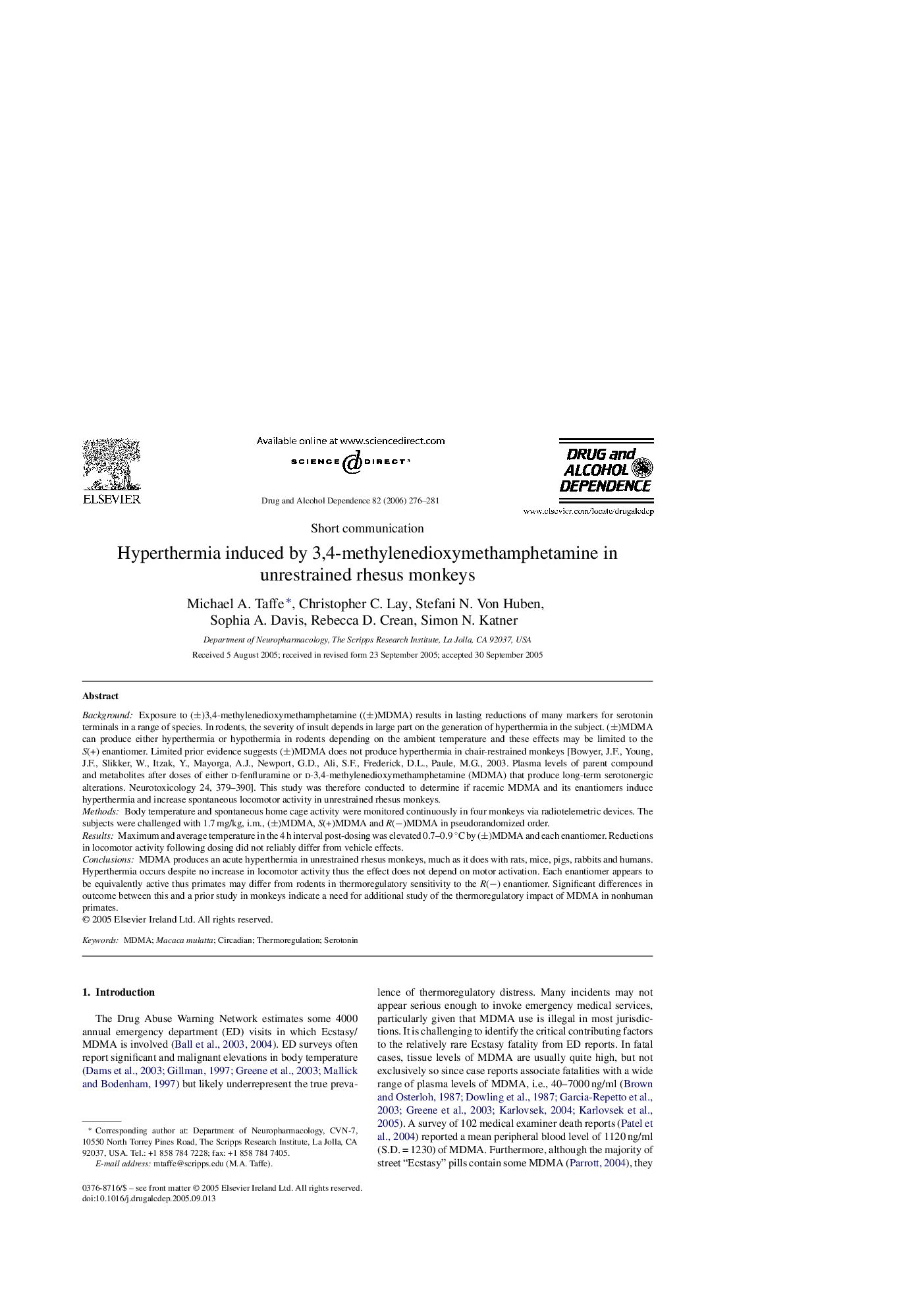| کد مقاله | کد نشریه | سال انتشار | مقاله انگلیسی | نسخه تمام متن |
|---|---|---|---|---|
| 1071571 | 949410 | 2006 | 6 صفحه PDF | دانلود رایگان |

BackgroundExposure to (±)3,4-methylenedioxymethamphetamine ((±)MDMA) results in lasting reductions of many markers for serotonin terminals in a range of species. In rodents, the severity of insult depends in large part on the generation of hyperthermia in the subject. (±)MDMA can produce either hyperthermia or hypothermia in rodents depending on the ambient temperature and these effects may be limited to the S(+) enantiomer. Limited prior evidence suggests (±)MDMA does not produce hyperthermia in chair-restrained monkeys [Bowyer, J.F., Young, J.F., Slikker, W., Itzak, Y., Mayorga, A.J., Newport, G.D., Ali, S.F., Frederick, D.L., Paule, M.G., 2003. Plasma levels of parent compound and metabolites after doses of either d-fenfluramine or d-3,4-methylenedioxymethamphetamine (MDMA) that produce long-term serotonergic alterations. Neurotoxicology 24, 379–390]. This study was therefore conducted to determine if racemic MDMA and its enantiomers induce hyperthermia and increase spontaneous locomotor activity in unrestrained rhesus monkeys.MethodsBody temperature and spontaneous home cage activity were monitored continuously in four monkeys via radiotelemetric devices. The subjects were challenged with 1.7 mg/kg, i.m., (±)MDMA, S(+)MDMA and R(−)MDMA in pseudorandomized order.ResultsMaximum and average temperature in the 4 h interval post-dosing was elevated 0.7–0.9 °C by (±)MDMA and each enantiomer. Reductions in locomotor activity following dosing did not reliably differ from vehicle effects.ConclusionsMDMA produces an acute hyperthermia in unrestrained rhesus monkeys, much as it does with rats, mice, pigs, rabbits and humans. Hyperthermia occurs despite no increase in locomotor activity thus the effect does not depend on motor activation. Each enantiomer appears to be equivalently active thus primates may differ from rodents in thermoregulatory sensitivity to the R(−) enantiomer. Significant differences in outcome between this and a prior study in monkeys indicate a need for additional study of the thermoregulatory impact of MDMA in nonhuman primates.
Journal: Drug and Alcohol Dependence - Volume 82, Issue 3, 20 May 2006, Pages 276–281